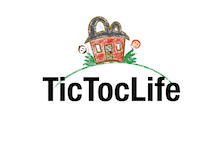How to reduce food waste while saving money and the planet
Nearly a third of food is wasted at the household level and that eats into our own finances while damaging the environment. How can we fix this? Keep reading

I'm Chris, one part of the duo at TicTocLife.com where we write about financial independence and our story of early retirement. We have ideas to share with the Planet Forward community where personal finance intersects with urban living, energy consumption, the environment, and food waste.
We want to help you take the opportunity to improve the planet while simultaneously building your personal wealth.
Food waste and personal finance
It's possible to rethink the way you treat your consumption in various ways that'll not only improve the environment but also your financial situation. For example, reducing food waste means that you're doing a better job of consuming the very food you've purchased. Over time, that'll help you save money on food while cutting waste.
Win-win.
How and where you live affects your spending and the environment
This same principle applies to how and where you live. Choosing to live in an urban environment means you'll likely live in a smaller footprint home that takes less material to produce, uses less energy to heat and cool, and requires less "stuff" to fill up. All of those environmental benefits similarly reduce your spending as you save money on energy bills, decor, and housing maintenance.
Urban density also lends itself to simpler transportation: you can probably walk or bike to the stores you visit frequently and use public transit for larger trips around town. Reducing your vehicle usage means less polluting emissions, healthier living by using your own muscle to transport yourself, and cost savings by not having to keep up with vehicle replacement and maintenance at the same rate. Reducing auto-related expenses is a key component of building your stage of financial independence.
Your financial future and the planet's are correlated
Reducing your environmental footprint is a key focus for Planet Forward and that focus can be used to simultaneously reduce your personal financial expenses. That can put you in a much better position for your future, letting you focus your spending in areas that matter to you and supporting consumer spending habits that improve the environment. These cumulative decisions might even let you get on track to build the life you want, and then save for it.
Nearly a third of food is wasted at the household level and that eats into our own finances while damaging the environment. How can we fix this? Keep reading